The Saturday Read: Where language ends
Inside: Power on the right, Mearsheimer, GB News, No 10, and music in war.
Good morning, and welcome to the Saturday Read, the New Statesman’s weekly guide to the best writing on ideas, politics, books and culture. This is Will, along with Harry and Pippa.
Here in London, I’ve been preparing for next week’s Conservative Party conference in true Tory fashion by sending mean WhatsApp messages about sitting cabinet ministers to other journalists. If I carry on like this I’ll probably be the next leader of the party. Or perhaps that person is already hiding in plain sight on our Right Power List. Harry remains in America. He’s written today’s sign-off. If he stays in the US any longer we will have to assume he has finally achieved his life goal of being recruited by the CIA.
If today’s pieces intrigue, perhaps you’d like to try a trial subscription to the NS. Read three free articles after registering on our site. A digital subscription is only 95p a week. Let’s get to it.
1—“Who now wields the greatest influence among the Tories and on the British right?”
The Conservative Party may soon be out of government for the first time since 2010. Understanding who might shape the party – and conservatism more broadly – is becoming an increasingly urgent question. This week our Right Power List, selected by a panel of New Statesman contributors, sketches out a few answers. Some of them might surprise you. WL
What are the broad trends that emerge from our list? Though female cabinet ministers such as Suella Braverman and Kemi Badenoch make our top ten, the list is male-dominated (with 41 men to nine women): a reflection of where power continues to lie on the right. Also notable by their absence are figures who as recently as 2016 would have dominated any list: David Cameron, George Osborne, their allies among liberal conservatives. Thirty-two of those featured publicly backed the cause that ended Cameron and Osborne’s Westminster careers: Brexit. “If we’ve lost Rishi we’ve lost the future of the party,” Cameron said of the future prime minister’s support for Leave in 2016 – words that have proved prophetic.
2—“You could see that Putin had been thinking in terms of preventive war – I had missed that.”
Gavin Jacobson has interviewed John Mearsheimer, who has become possibly the world’s most hated thinker. Mearsheimer, the most prominent advocate of the theory that Nato “expansion” caused the 2014 annexation of Crimea and eastern Ukraine, unfurls a new set of explanations for Russian revanchism here. It makes for fascinating reading. HL
Rejected in the homeland, Mearsheimer has been embraced by its enemies abroad. In 2016 he was a guest at the Valdai Club in Sochi, Russia, a conference on “The Future in Progress: Shaping the World of Tomorrow”. At the end of the event, Mearsheimer saw Putin up close when the Russian president spoke at a Q&A.
When I asked him about his impressions of Putin, his answer was like a reference he may have written for a prize student: “It was clear to me – and I think to all the others who were at the conference – that Putin is remarkably knowledgeable and has first-rate analytical capabilities, coupled with real command presence. I didn’t agree with everything he said, but there was no doubt in my mind that he is a first-class strategist and that the West is dealing with a formidable opponent.”
3—“A silver spoon baby turned to rust, raging about his divorce from a national treasure and furious that he never became Benedict Cumberbatch.”
Somehow the main story in Britain this week revolved around a fourth-rate actor, a suspended news anchor, and one of the most ill-advised uses of the word “shag” ever to be broadcast on national television. Clive Martin anatomises the Laurence Fox affair, and all the problems it caused for GB News. WL
Where does Fox go next? He probably sees himself in the mould of Candace Owens and Lauren Southern, right-wing pundit personalities who can command strong audiences and wealthy benefactors without the help of traditional media. Or he believes that he can wrestle his way to his own show on GB News, perhaps realising his wildest ego dreams by playing a Leonard Cohen song at the end of every episode. Which is, horribly, conceivable on a channel that gives Nigel Farage his King of Comedy moment every week.
It’s fair to assume that Fox does not have the capacity for either route. Although a grimly entertaining character, that’s really all he is; a sideshow, a jester, a fall guy, a rent-a-wanker. In small doses, his schtick may appeal to fans of Owens, Southern or Farage’s Talking Pints, but as a whole, it would be like watching the Joey Tribbiani spin-off show, except Joey is banging on about “cultural Marxism” the whole time.
4—“The back of the buildings shows what the street really is: condemned.”
Anoosh Chakelian visits Aberfeldy Street, in London’s Poplar, where a run-down thoroughfare awaiting redevelopment has been temporarily transformed into a technicolour hub. But can “meanwhile space” ever provide meaningful local community, or is it just another ploy by developers? PB
“Meanwhile space” is an uneasy compromise between market interests and local needs. Around the country, vacant shops on dying high streets are temporarily offered by landowners to businesses and charities for cheap rents. This can bring valuable experience and profile to business owners, and footfall to a neglected area. But it can also be a ploy to artificially drive up the desirability of a place (and its land value), before plonking housing there and leaving the area with little character.
Alongside providing better transport connections, railway lines contribute to employment, economic prosperity, and sustainability goals. Large-scale rail projects can have big price tags, but research shows that the investment pays off. With insights from East West Rail, read our latest article with partner WSP to learn more about the potential for huge uplift in the national economy.
How are new rail networks boosting the economy?
5—“No 10 is planning a reset this autumn.”
Ahead of the Tory party conference this week, Freddie reveals where power lies in Rishi Sunak’s No 10. You may not have heard of many of these special advisers. That is by design. HL
Unlike Cummings, Booth-Smith is absent from the public mind. When I asked Jonathan Powell, the very first chief of staff – appointed when Tony Blair created the role in 1997 – what he thought of the current one, he had no idea who he was.
The two No 10 operations reflect the prime ministers they serve. Johnson was tasked with the greatest constitutional change in postwar politics. Sunak’s five priorities – to grow the economy, reduce debt, halve inflation, stop the boats and cut waiting lists – simply restate the normal duties of government.
6—“Music is ‘an archive of emotion and meaning, history and memory’.”
In Time’s Echo, Jeremy Eichler sets four classical compositions – Arnold Schoenberg’s A Survivor from Warsaw, Richard Strauss’s Metamorphosen, Dmitri Shostakovich’s 13th Symphony, and Benjamin Britten’s War Requiem – in their war-torn context. But William Boyd isn’t quite convinced by his thesis that music, above all art forms, has a special ability to take us back in time. PB
As an experiment, having read Eichler’s book and having particularly relished the pages on Strauss’s Metamorphosen, a piece of music I know and love, I listened to it again. And, yes, it is a beautiful and plangent work, about 25 minutes long, as mesmerising in its way as the adagietto from Mahler’s Fifth Symphony. However, for all that I now knew about the piece, it was not the troubled context that held my attention. Deep down it may have been carrying “time’s echo”, but above all it was the thrill and majesty of the music that was working on me, speaking a language where language ends.
7—“Tsipras organised a referendum where Greeks said ‘no’ to austerity, only then to tell them that there was no alternative.”
How did a Goldman Sachs investment banker take over Syriza, the party of Greece’s “radical left”? David Broder explains. HL
Kasselakis, 35, has little activist record, has never held elected office, and his campaign in Syriza’s internal primary, in which he scored 57 per cent of the vote on 24 September, did little to spell out his policies. The Greek-American businessman spoke of making Syriza a “big tent” force akin to the US Democrats, one which would “copy the US political formula as soon as possible”.
8—“I’m not who you think I am.”
Rachel Cunliffe meets the Conservative London mayoral candidate Susan Hall to find out how a 68-year-old hairdresser ended up polling only three points behind Sadiq Khan. (Rachel also interviewed Mary Beard: “I think learning to be tough, learning to be a bit resilient, is wholly to the good.”) PB
Hall, who complimented me on my nail varnish (hers is a bright sky blue) and wanted to know all about how my house move was going, is clearly bidding for the “normal people” vote. She has lived in London all her life, growing up and then raising her own family in the north-west borough of Harrow.
Her father was a mechanic (“He came from one of 13 children and clawed his way up to look after his family”). Hall worked in his garage as a teenager after he died, then married and started a hairdressing salon with her (now former) husband, with whom she has two children, now grown up. She told me about travelling home from a night out clubbing in the early hours of the morning when she was young (“I used to drive a little old Fiat 127”) and thinks London needs to get its nightlife back or “all our young people will move out”.
Will’s Best of the Rest
Daily Mail: Trump could lose his tower.
NYT: The man who wrote everything. That’d be Gay Talese, for readers of last week’s sign-off.
Politico: The great British train robbery.
Bloomberg: Has Britain finally found the heir to Blair? All Starmer has to do to complete the look is invade Iraq.
Faith Hill: Group chats are eating reality.
Michael Caine: I’m 90. I worry if I’m gonna make it to lunch.
Anton Jäger: Explaining Europe’s rightwards lurch.
Sirena He: Everybody loves Tom Wolfe again. It’s amazing how far wearing a white suit and writing in italics can take you.
Emily Witt: How the AR-15 became an American brand.
“I was just sitting my ass in the chair every day and typing the first line.” Aren’t we all?
Boy versus tree. I am on the tree’s side.
Boris Johnson allowed swimming pool. Thank goodness – I was starting to feel for the guy.
Elsewhere on the NS
The game is up for Rishi, Andrew argues this week. He is out of time.
No 10’s mooted plan to scrap inheritance tax, Harry writes, shows a government in its death throes. A wise government would replace it with something else – a capital acquisitions tax.
Another tough day for Momentum, brought to you by Rachel Wearmouth.
Lily Lynch responds to Paul Kennedy’s cover story last week. Is the EU a great power? Possibly not: “The EU’s chronic inability to ‘speak with one voice’ will probably imperil its status as what Kennedy calls a ‘slightly-less-than-great power’, let alone allow it to become a great one.”
“The Islamic Republic does not even claim to be a nation-state.” How should we describe contemporary Iran in normal political language? It is a colonial regime.
Sophie McBain on Clearview, the shadowy start-up that can uncover your entire identity from a single snapshot.
Will Dunn has the essential read on HS2. (Why, Jonn Elledge asks, can’t we build anything?)
Andrew Gamble, whose book Britain in Decline was published in 1981, considers the political pessimism once again gripping the right.
David Sexton finds the conclusion to Ken Loach’s dour-north trilogy, The Old Oak, an exercise in wishful thinking.
Pippa Bailey takes aim at the bestselling novel Lessons in Chemistry ahead of the premiere of its Apple TV adaptation.
And with that…
It has now been raining uninterruptedly in New York for a week. A week! It is pouring down on the skylight above me as I type. I am headed to Brooklyn later where trees have been felled and streets flooded. I’ll swim back to Manhattan tonight.
The United Auto Workers strike is expanding here, and drew both Biden and Trump to separate rallies alongside workers in recent days – something you have not seen Sunak or Starmer do during British strikes over the past year. (Trump addressed a non-union audience at his event, while acting at one point like he was addressing the UAW in order to be clipped on Fox.) Meanwhile, the Hollywood writers’ strike ended at last, on their terms. The studios and streamers, who had overspent on production for years, were happy to cut spending in the work stoppage. But they lost their leverage when the actors joined the writers on strike; no deal has been struck with them yet.
On Monday I caught up with David Decosimo, a professor at Boston University, the home of Ibram X. Kendi’s allegedly ill-run Center for Antiracist Research. Kendis’s new critics, Decosimo noted, are “upset that Kendi has mismanaged the movement”. They are not saying that the movement itself, which states that any racial disparity in any aspect of life is both constitutive of racism and caused by it, is wrong.
Decosimo is wary of seeing that idea as having lost its hold over elite American universities. Its adherents want universities to “be a direct agent of social transformation, or even revolution, in accordance with their particular vision, rather than a place which teaches open-ended exchange in good faith as the only means of getting at truth”. It is that belief, Peter Boghossian argued for us this week, that still needs to be challenged.
Thank you for reading. Don’t miss out – subscribe to the New Statesman and stay up to date with everything you need: from news and analysis to comment and criticism.
Whether you’re looking for a sharp blog or a finely written feature, the New Statesman has you covered. Have a good week, and catch you next Saturday.
Thanks to Chris Bourn.










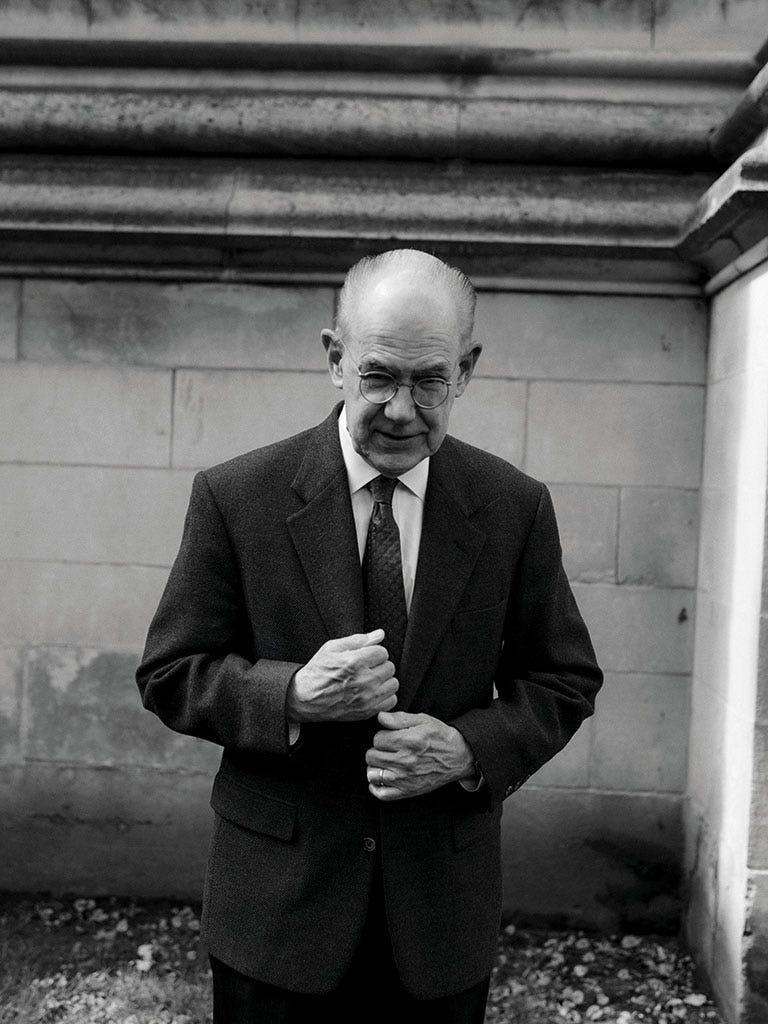



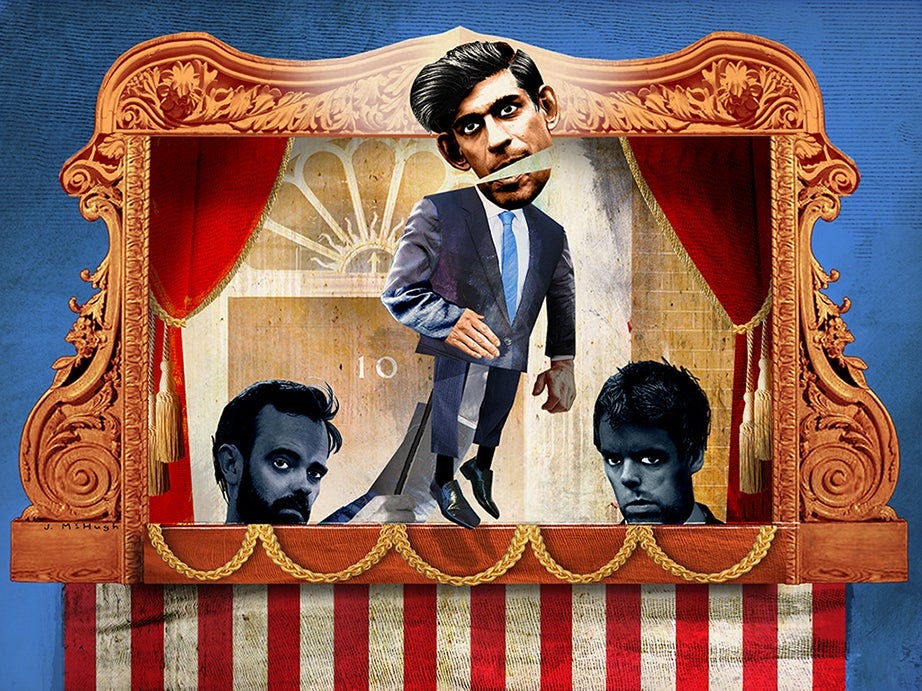
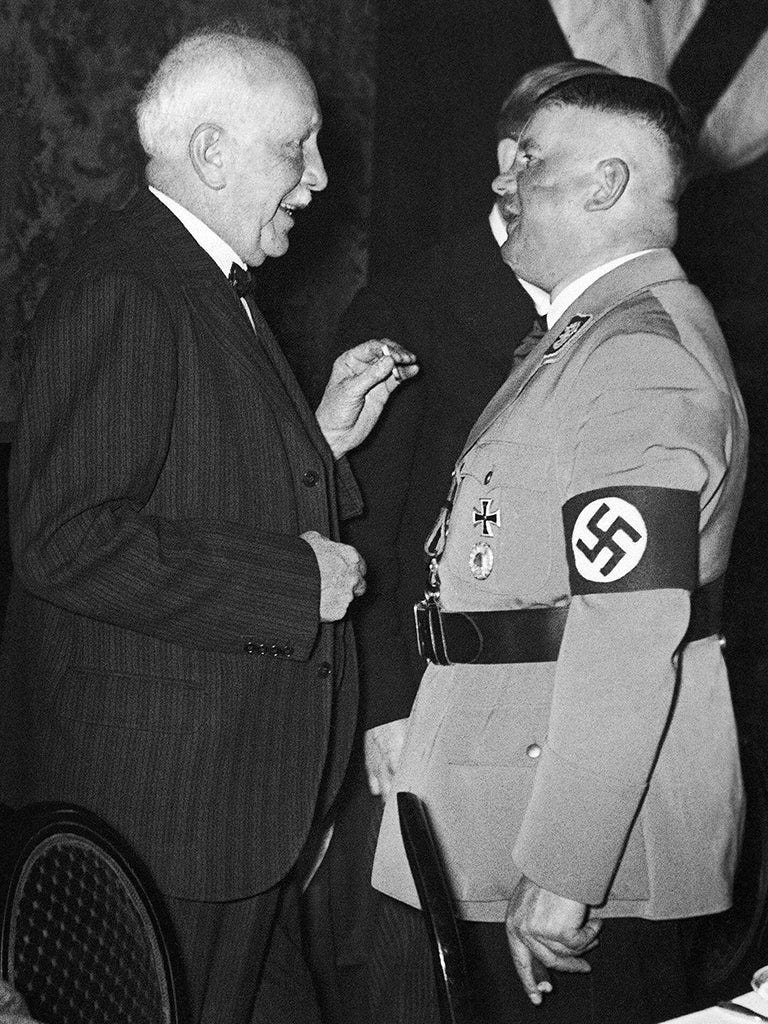
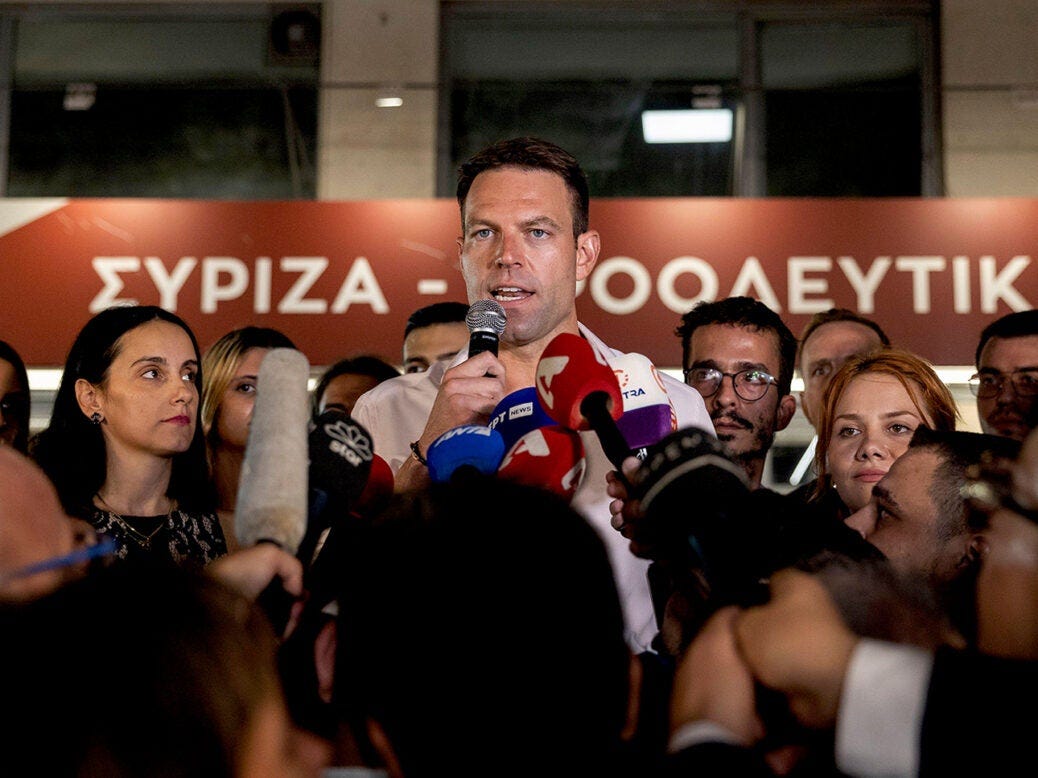
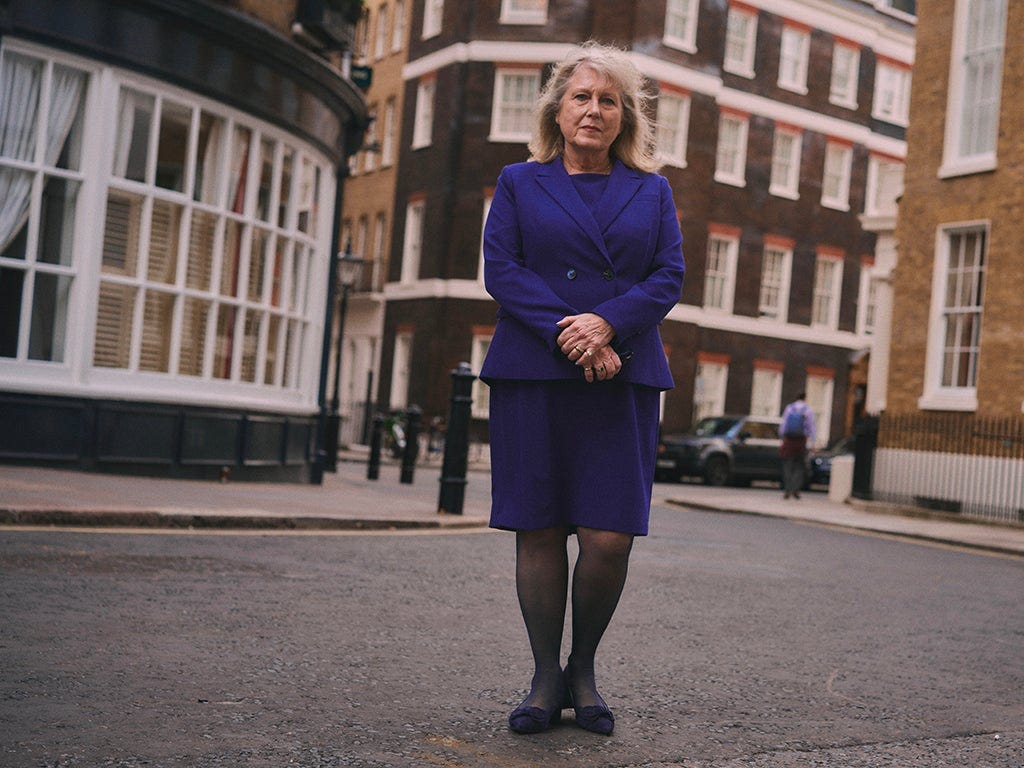



What is there for a UK conservative to fight for? Or even any western European conservative? Lower taxes? Never happen. Right to armed self-defense? Forget it. Traditional marriage? Are you kidding. Energy independence? Over the ruling Inman’s dead body. Consecrating the nation to the Sacred Heart of Jesus?
Europe is finished.
The BBC is "an institution that is often accused of having a left-wing bias. But we believe the BBC more often than not displays a conservative establishment bias – witness its fawning coverage of the monarchy – and for this reason Davie makes our list."
OK, so now ask yourselves - honestly - NS journalists (because honest journalism is your thing, Yes?)
- what proportion of the BBC's 20-odd thousand employees would you guess are Conservative voters?
- and what proportion, Labour voters?
- and how many scriptwriters of BBC dramas would you guess think of themselves as conservatives?